2024
March 2024
Pleased to share the results of our study of sex-specific and sex-biased genetics of blood pressure @NatureMedicine, with graduate student Min-Lee Yang as first author.
https://www.nature.com/articles/s41591-024-02858-2
Key findings:
- 29 new BP-associated genetic loci
- Sex-specific analyses yielded 2.9 X more female-specific loci vs male-specific loci
- Sex-specific loci were enriched for hormone TF effects, esp ESR1
- Female-specific associations of DBP and PP at the chr13 COL4A1/COL4A2 locus, overlapping independent associations with SCAD in this complex locus, and we observed associations with FMD as well
- Female-specific pulse pressure-associated loci were enriched for acetylated histone H3 Lys27 modifications in arteries
- Several sex-dimorphic and sex-specific associations were seen with various CVDs known to have different prevalence, manifestations, or outcomes according to biologic sex; female-specific PP genetic influences were associated with FMD, suggesting potential shared mechanisms of arterial fibrosis/stiffness
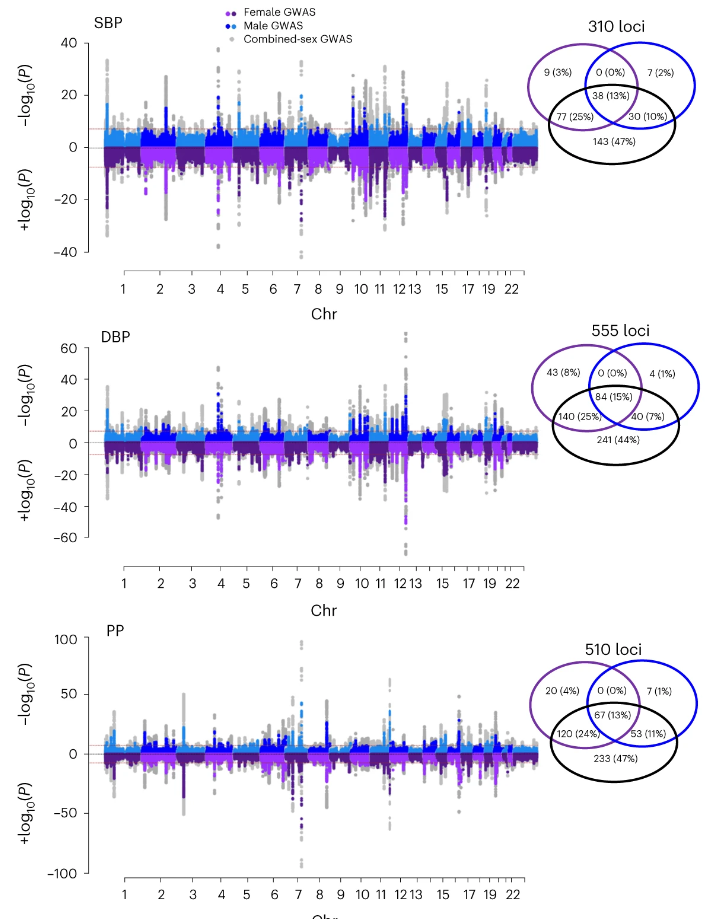
2023
November 2023
Postdoctoral fellow Alex Katz, MD (NIDDK TL1 training grant) reviewed the current state of knowledge of SCAD genetics published in the article “Advancements in the Genetics of Spontaneous Coronary Artery Dissection“.
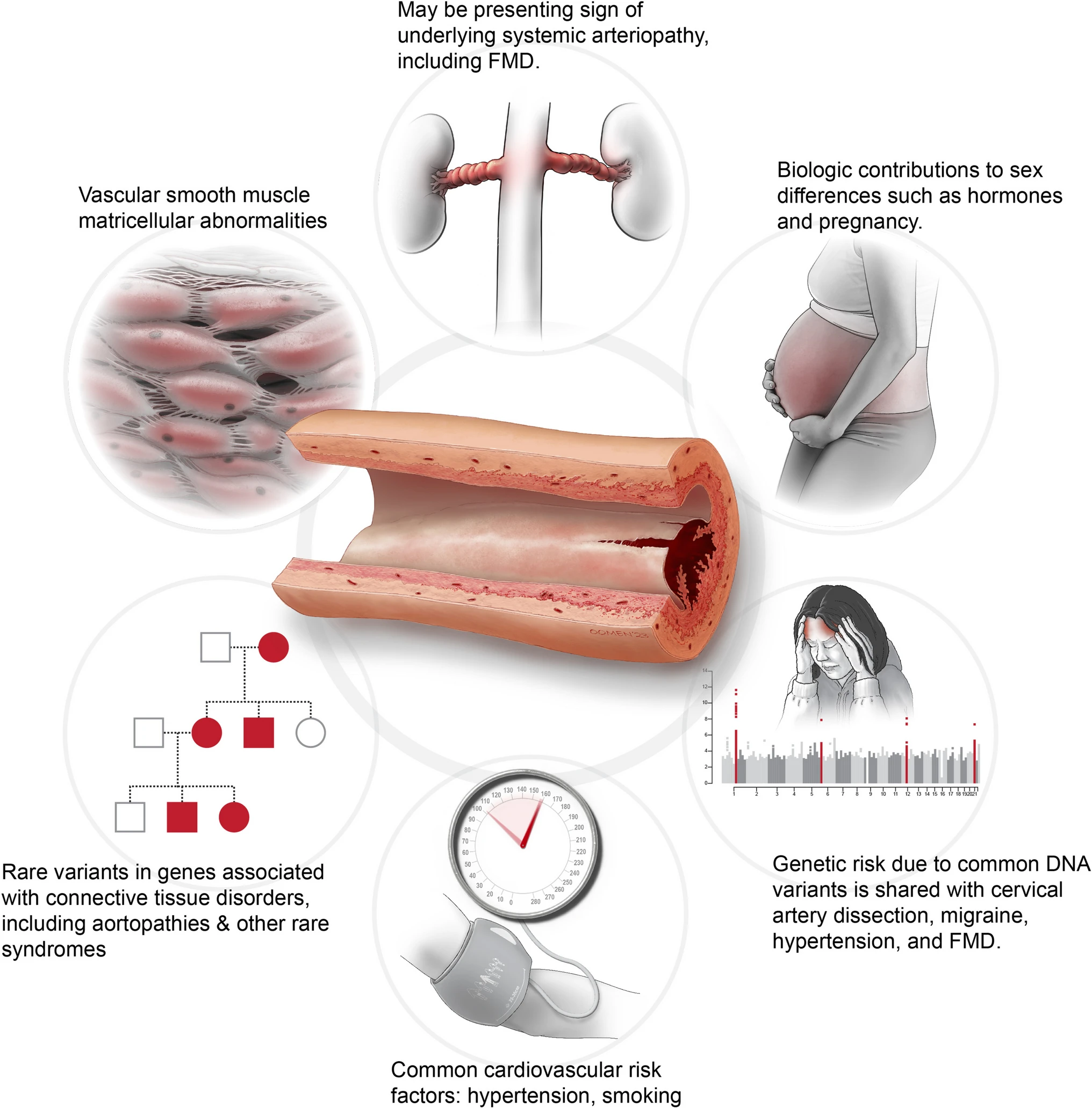
Fig.1 Genetic, biologic, and clinical associations to SCAD.
May 2023
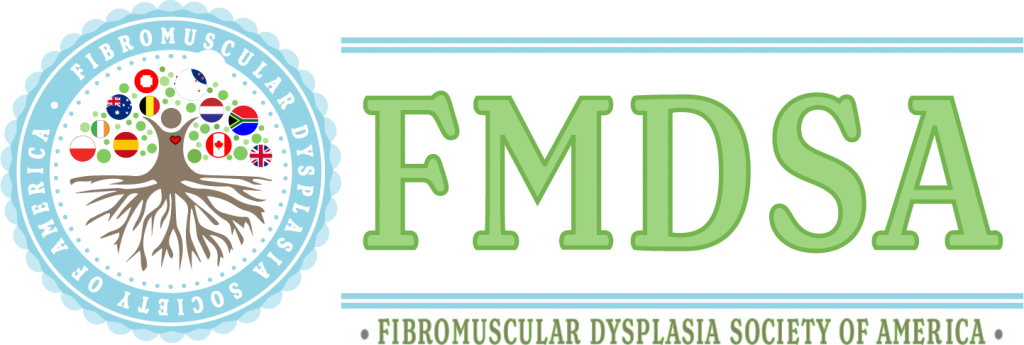
FMDSA 2023 Annual Conference – This is FMDSA’s 20th year – Congrats FMDSA! Dr. Ganesh spoke on “Discovering Genes for FMD: What We Currently Know, What We Do Not Know, and How We Use Genetic Information in the Clinic,” and the team enrolled patients into the University of Michigan Genetic Study on site.

Vancouver SCAD Conference 2023 – At the 5th international VanSCAD meeting, Dr. Ganesh updated on SCAD genetics, connections to vascular connective tissue diseases, and when to consider clinical genetic testing. Talks will be posted at https://vanscad.ca/agenda/.
2022
December 2022
New paper published: Fibromuscular Dysplasia and Abdominal Aortic Aneurysms Are Dimorphic Sex-Specific Diseases With Shared Complex Genetic Architecture. Pleased to have our study of familial risk of arterial disease with FMD published: https://www.ahajournals.org/doi/10.1161/CIRCGEN.121.003496, led by former T32 fellow Alex Katz and graduate student Min-Lee Yang. In the families of 73 FMD probands, there were several findings of arterial dysplasia, supporting the variable arterial manifestations that may occur with a common genetic basis. The risk of FMD was increased in female relatives, RR ~1.5 overall and higher in younger generations.

Notably, male relatives (typically older than the FMD probands) had an increased risk of abdominal aortic aneurysm (AAA), RR 2.3. To confirm the relationship between FMD and AAA, we tested polygenic risk scores (PRS) for FMD and AAA, constructed from GWAS for each disease and associated common variants. The PRS analyses validated the FMD-AAA relationship. PRS for FMD, as well as PRS for SCAD, spontaneous coronary artery dissection, and CeAD, cervical artery dissections – diseases with genetic pleiotropy – were similarly associated with AAA. The findings support consideration of expanded vascular screening for arterial disease in families with FMD. We appreciate all of our terrific collaborators and their contributions to this paper.
And thanks to the journal for a neat visual summary!: https://twitter.com/Circ_Gen/status/1602792984344494080
October 2022
New paper published: Burden of Rare Genetic Variants in Spontaneous Coronary Artery Dissection With High-risk Features. Postdoctoral fellow Yu Wang led a publication in JAMA Cardiology based upon a collaboration with CanSCAD investigators to perform an exome sequencing analysis of SCAD in individuals with clinical high-risk features (peripartum SCAD, recurrent SCAD, and SCAD in an individual with a family history of arteriopathy). This group of individuals had an increased burden of rare genetic variants in genes implicated in SCAD. These findings inform clinical considerations regarding which patients to refer for genetic testing and contribute to our biological understanding of SCAD.
Additionally in the prospective CanSCAD registry, Dr. Ganesh participated in the publication of new data suggesting a lower mortality and SCAD recurrence rate than previously reported. Recurrent MI occurred in 9.9% at 3 years of follow-up after a SCAD presentation, and was more often due to an extension of previous SCAD, which occurred in 3.5%, as compared to true de novo SCAD, which occurred in 2.4%. Another report from the registry defined that 10% of over 1000 patients with SCAD were men and that significant differences between men and women with SCAD included that men were younger, were less often were found to have FMD, and were less likely to have recurrent chest pain after the initial SCAD. MACE in-hospital or 3-year follow-up between men and women were not significantly different.
September 2022

The Second International Symposium on Pediatric Renovascular Hypertension (pRVH) was held in Ann Arbor at the University of Michigan, co-chaired by Dr. Dawn Coleman, Dr. Rulan Parekh (Toronto Sick Kids) and Dr. Santhi Ganesh, with support from PCORI and Taubman Institute. We are grateful for the participation of global and diverse stakeholders representing 9 medical specialties, patients, and families. Dr. Jim Stanley gave his unique perspective based upon decades of clinical and research experience with renovascular hypertension. Dr. Coleman led an inspirational set of sessions that is galvanizing an international patient-centered research program for pRVH. Learn more at https://www.prvh-pcor.org/.
May 2022
In a study conducted by medical student Hannah Hill, postdoctoral fellow Yu Wang, and genetic counselor Andrea Murad, and collaborating with 3 large registries of individuals with thoracic aortic disease, SCAD was infrequent in >7,000 individuals. This was counter to our hypothesis that this group would have more frequent SCAD, owing to the known genetic influences in a subset of individuals with SCAD that overlap with the genetic basis of thoracic aortic disease. These findings support the need for further gene discovery research for SCAD.
February 2022
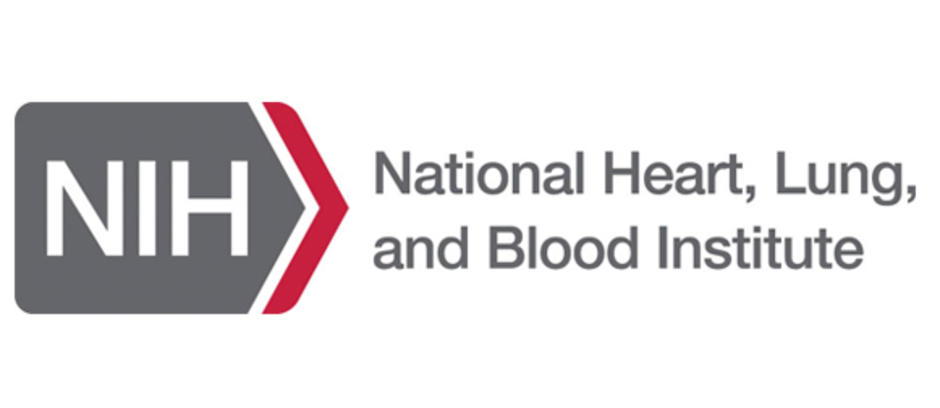
We are thrilled to be awarded a NIH Maximizing Investigators’ Research Award (MIRA) (R35) which will provide 7 years of funding support.

The VanSCAD2022 virtual conference highlighted many clinical and research updates on SCAD, including a genetics update by Dr. Ganesh. The agenda and recorded seminars are accessible at https://vanscad.ca/.
January 2022

The lab is collaborating with a new PCORI-supported Virtual Research Network (VRN) focused on pediatric renovascular hypertension (PRVH), led by Dr. Coleman and colleagues: https://www.prvh-pcor.org/. Supported by the Taubman Institute, we are investigating molecular, genetic, cellular, histologic, and angiographic characteristics of disease alongside clinical expert collaborators.
2021
December 2021
The FMDSA annual conference was held virtually on 12/4/2021. Dr. Ganesh spoke to update on the topic of genetics. Presentations are accessible at https://fmdsa.org/fmdsa-annual-conference-virtual/.
October 2021
Drs. Coleman and Ganesh published, with co-first author T32 postdoctoral fellow Yu Wang, an analysis of pediatric renovascular hypertension in the context of Neurofibromatosis Type 1, a rare but often severe and progressive arterial disease. The histologic and molecular features of the arterial disease, including upregulated MAPK/Erk1 signaling within the arterial lesions, were consistent with an aggressive adverse vascular remodeling process.
Our first GWAS of FMD was published with co-first author Bioinformatics graduate student Min-Lee Yang, and Dr. Ganesh as co-senior, co-corresponding author with Dr. Bouatia-Naji at InSERM in Paris, France. The GWAS meta-analysis was performed by collaborating with several additional international sites to achieve statistical power, and it prioritized 5 genes for FMD and defined tissue-specific gene regulation that may be relevant for the pathogenesis of FMD. Potential mechanisms impacting the structure and function of vascular smooth muscle cells were highlighted by the genetic discoveries. Notably, the complex genetic architecture of FMD overlaps with several more common cardiovascular diseases and traits including blood pressure, migraine, intracranial aneurysm, and coronary artery disease. It is interesting that the disease associations of FMD in this study align with disease associations according to the complex genetic basis of SCAD that we published last year , particularly for migraine headache and the inverse association with atherosclerotic coronary artery disease. UM blog posting.
June 2021
Our systematic review of FMD and SCAD in Circulation Research is out, covering clinical and genetic aspects of these two dysplasia-associated arterial diseases that disproportionately burden women. The focus of the paper includes clinical associations, histopathologic findings, genetic susceptibilities, and our current understanding of the biology of FMD and SCAD. Genetic investigation has a lot to offer for our understanding of these diseases.
March 2021
Dr. Ganesh and colleagues report on “current progress in clinical, molecular, and genetic aspects of adult fibromuscular dysplasia.” The Cardiovascular Research publication indicates that “increasing evidence highlights that FMD is a systemic arterial disease and that subclinical alterations can be found in non-affected arterial segments. Recent significant progress in FMD-related research has led to improved understandings of the disease’s clinical manifestations, natural history, epidemiology, and genetics. Ongoing work continues to focus on FMD genetics and proteomics, physiological effects of FMD on cardiovascular structure and function, and novel imaging modalities and blood-based biomarkers that can be used to identify subclinical FMD.”
January 2021
Dawn Coleman, M.D., will formalize a patient-centered outcomes research global collaborative to improve the care of children with a rare disease. It’s thanks to new funding through the Eugene Washington PCORI Engagement Awards program, an initiative of the Patient-Centered Outcomes Research Institute (PCORI). More information about the collaborative is available online here.

VanSCAD2021 will be held virtually on January 30, 2021. A broad international faculty will be giving comprehensive updates on SCAD. The agenda, faculty, and registration can be accessed at https://vanscad.ca/. Dr. Ganesh will be presenting on genetic considerations in the evaluation of SCAD.
2020
September 2020
The Ganesh Lab and colleagues conducted a genetic study on fibromuscular dysplasia (FMD) that has identified a COL5A1 gene variant that is associated with classical Ehlers-Danlos Syndrome and multifocal FMD. These findings are clinically actionable with the importance of this research described here. The manuscript publication is available online here.
With UBC collaborator Dr. Saw and colleagues, we conducted a research study on the genetics of spontaneous coronary artery dissection (SCAD). Our findings include new genetic variants and genes associated with SCAD risk. Notably, the findings supported a correlation between SCAD and FMD genetic risk, and an inverse risk of SCAD risk and more traditional atherosclerosis-mediated myocardial infarction. A press release highlighting the importance of this research can be found here. The manuscript publication is available online here.
August 2020
A brief commentary on the risk factors, clinical implication and recommendation for genetic evaluation for pregnancy-linked arterial dissection as reported in TCTMD is accessible online here.
July 2020
The University of Michigan Regents approved Dr. Ganesh‘s appointment as the “David J. Pinsky MD Endowed Professor of Cardiovascular Medicine.”
May 5–7, 2020
Despite needing to go virtual after the COVID-19 related shutdowns, the Ganesh Lab participated with 4 abstract presentations at the Vascular Discovery: from Genes to Medicine, Scientific Sessions 2020, AHA meeting of the Arteriosclerosis, Thrombosis and Vascular Biology Council, Peripheral Vascular Disease Council, and Genomics & Precision Medicine Council. Congratulations to the meeting organizers! Pulling off a quick conversion from an in-person meeting to a virtual event was no small task.
March 2020
We received a new DoD grant to further our studies of arterial dysplasia phenotypes!
2019
November 11-12, 2019
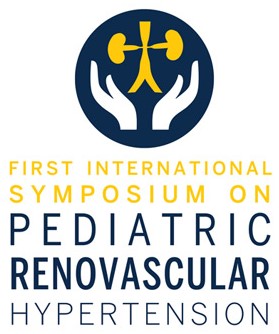
Dr. Dawn Coleman co-chaired the First International Symposium on Pediatric Renovascular Hypertension (pRVH)
held November 11-12 on the University of Michigan Ann Arbor campus that brought multi-disciplinary experts together
to identify best practices in the clinical management of these unique pediatric patients.
Dr. Ganesh participated in the Third International Fibromuscular Dysplasia Symposium held in Warsaw, Poland where she gave a presentation titled “Genetic update on FMD – United States Perspective.” Thanks to our wonderful Polish colleagues for the hospitality and opportunity to connect with the international community conducting research on FMD and SCAD.
August 2019
Dr. Ganesh participated as faculty in the Vancouver SCAD Conference 2019. Talks from the meeting are available here including a description of the current state of knowledge regarding the genetic considerations for SCAD. We enrolled patients at this meeting as well, after speaking to a patient group on the genetic considerations of SCAD. Thanks to study coordinator Alex Feschenko’s extra efforts to accomplish this and to Dr. Saw and her UBC team for hosting the conference!
